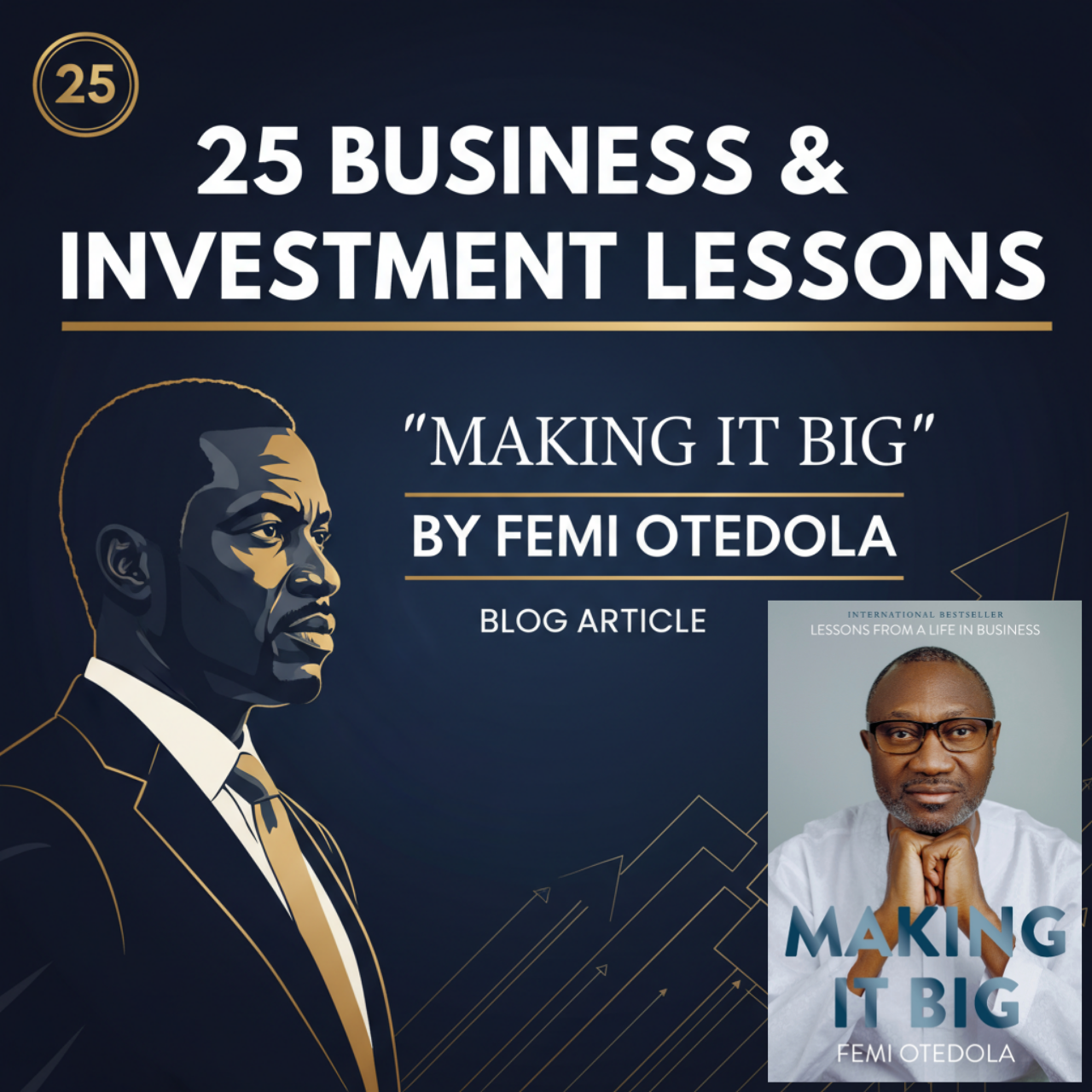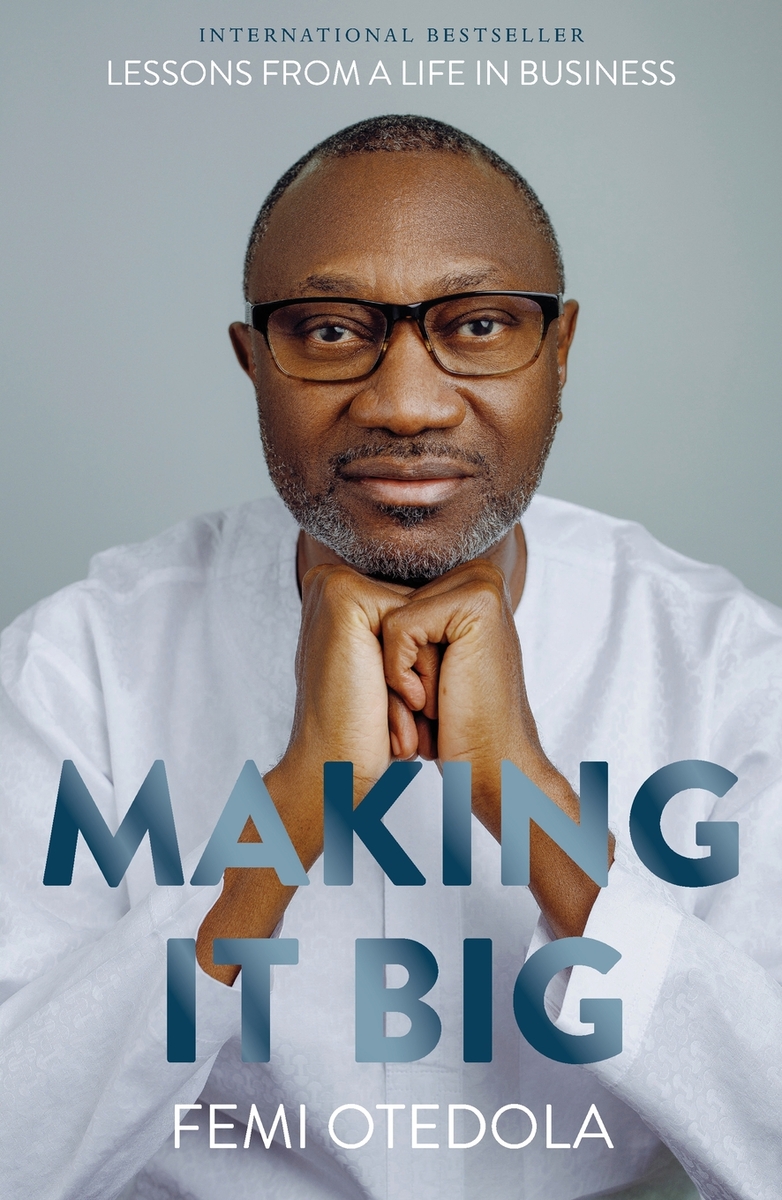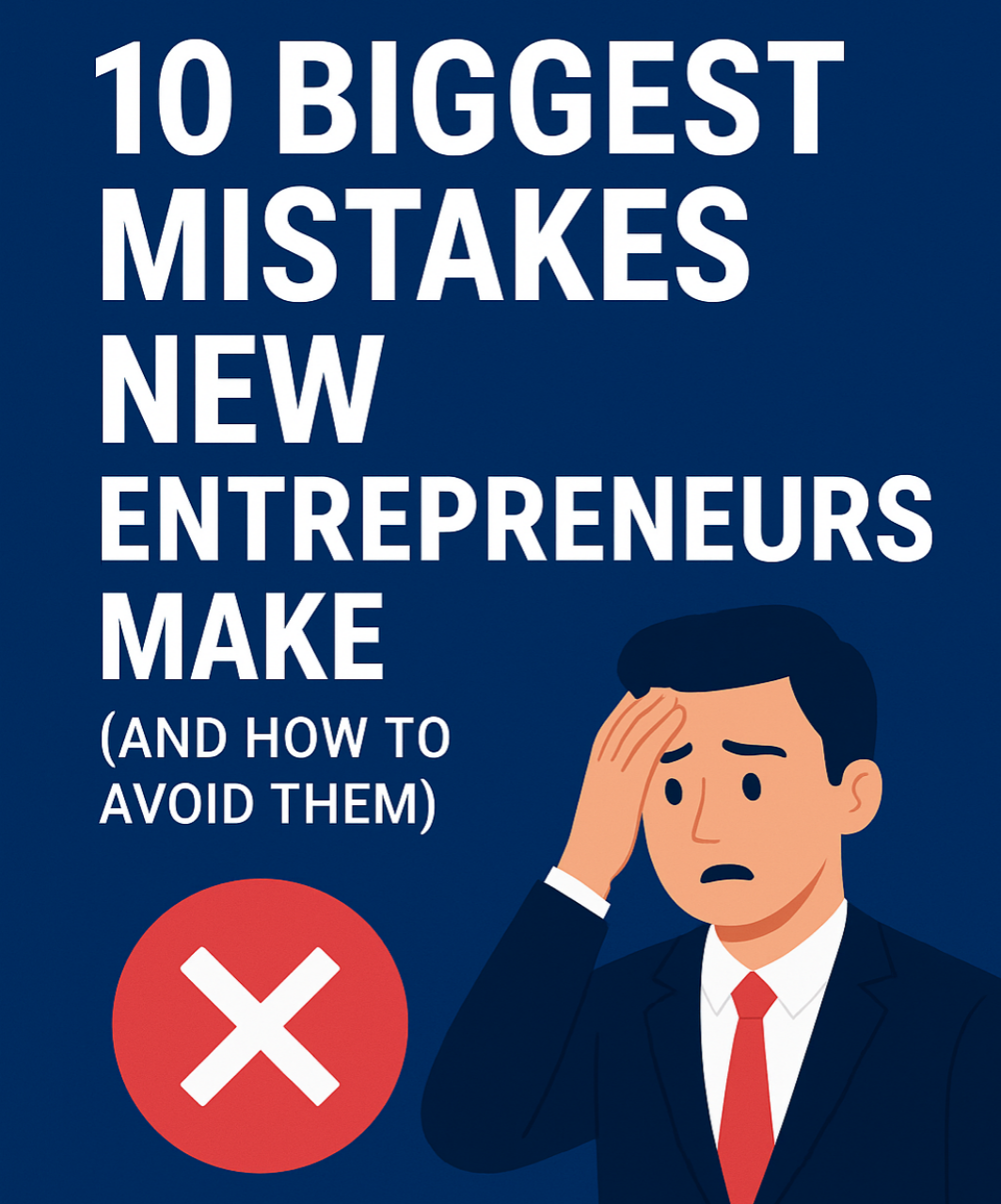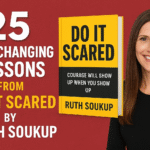As a seasoned entrepreneur, investor and book-analyst with 20+ years’ experience, I recently read Making It Big by Femi Otedola (released August 2025) and I distilled 25 core lessons that every entrepreneur, businessman or investor should learn. I’ll present each lesson in plain language, with analogies and step-by-step logic, so even a novice can follow and appreciate them.
The 25 Practical Lessons from Making It Big, by Femi Otedola
1. Dream Big — Start Early
Lesson: Otedola began business experiments before age ten, showing that ambition plus early action matters.
Analogy: Think of planting a tree: the earlier you plant, the sooner you’ll get shelter and fruit. If you plant at 20, you’ll enjoy it at 30; at 10, you’ll enjoy it at 20.
Step-by-step logic:
- Have a vision bigger than your current status.
- Don’t wait for perfect conditions — begin small.
- Grow over time, learn as you go.
Practical takeaway: Write down a bold business goal now, and take one small action toward it this week.
2. Build Your Business Muscle Through Repetition
Lesson: Starting with small hustles, Otedola sharpened his business instincts via consistent effort.
Analogy: You don’t become a marathon runner overnight; you build stamina by running short distances regularly.
Step-by-step logic:
- Start with simple business tasks — find a product, make a sale, deliver.
- Repeat and refine your process.
- Scale once you’ve learned what works.
Practical takeaway: Choose a simple business test this month (sell one product/service) and record what went right/wrong.
3. Resilience: Losing Isn’t Game Over
Lesson: Otedola lost a large fortune and bounced back. The key is not just success, but how you respond to failure.
Analogy: In boxing, you might get knocked down — the champion is the one who gets up and adapts.
Step-by-step logic:
- Accept that setbacks happen.
- Stop, assess what went wrong.
- Pivot or adjust strategy, then act again.
Practical takeaway: Write down one past business failure of yours, list what you learned, and how you’ll do differently next time.
4. Pivot & Reinvent Strategically
Lesson: Otedola moved across industries (oil, shipping, power, real estate) when opportunities or challenges demanded.
Analogy: Like a sailor who can change course when the wind shifts rather than fighting against it.
Step-by-step logic:
- Monitor your business environment.
- Identify when your current model is slowing.
- Choose a new direction that uses your strengths.
Practical takeaway: Look at your business model: is it still suited for tomorrow’s environment? If not, list one alternative direction.
5. Understand the Bigger System (Politics, Economy)
Lesson: In Nigeria’s oil and energy sector, Otedola shows how business is intertwined with policy, regulation and infrastructure.
Analogy: Running a boat not only requires you to row, but also to know where the currents and tides are.
Step-by-step logic:
- Map out regulatory, economic and political factors affecting your industry.
- Build relationships and awareness of those factors.
- Adapt your strategy accordingly.
Practical takeaway: Identify one regulatory or economic factor that could affect your business in the next 12 months; plan how you’ll manage or benefit from it.
6. Access & Relationships Matter
Lesson: Otedola emphasizes that while hard work and talent matter, access to decision-makers, networks and influence can accelerate success.
Analogy: Even with a great engine, you need runway and favourable traffic clearance to take off.
Step-by-step logic:
- Map your existing network.
- Identify gaps — who you need to know.
- Engage with them ethically, build trust, create value for them too.
Practical takeaway: Choose one person you don’t know today but need in your network; plan a value-offer and reach out within a week.
7. Master the Downstream (Operations)
Lesson: Otedola built infrastructure (depots, fleets, tankers) to control supply chain and operations — not just selling product.
Analogy: Selling cakes is fine, but owning the bakery is better — you control cost, quality and supply.
Step-by-step logic:
- Don’t just sell; ask how you can gain control of a key operational step.
- Invest in systems, infrastructure, processes.
- That control becomes a competitive advantage.
Practical takeaway: Identify a key operational bottleneck in your business and ask: can you own or improve that step?
8. Be Hands-On Early, Delegate Later
Lesson: In his early phase, Otedola was deeply involved; later he simplified and delegated as his enterprises scaled.
Analogy: A chef starts cooking every dish himself; when the restaurant grows, he hires a head chef and focuses on strategy.
Step-by-step logic:
- In early stage: you must know every part of your business.
- Once stable: identify tasks you can let go, and hire/train others.
- Focus your time on highest-impact areas.
Practical takeaway: List 3 tasks you currently do today; pick 1 you will delegate or outsource in the next month.
9. Build Financial Discipline
Lesson: To make large moves, Otedola emphasized disciplined capital allocation, leveraging debt when appropriate and controlling cost.
Analogy: Think of personal fitness – you don’t run a marathon without disciplined training and diet. Business is the same.
Step-by-step logic:
- Track cash flows.
- Prioritize reinvestment over consumption when growing.
- Use debt only if the return on investment justifies it.
Practical takeaway: Prepare a simple cash-flow forecast for the next 12 months for your business or project.
10. Turn Crisis into Opportunity
Lesson: Otedola leveraged crises (e.g., diesel scarcity) to build capacity and gain advantage.
Analogy: When the tide goes out, you can see the rocks — you get a chance to reposition.
Step-by-step logic:
- When something goes wrong: pause and analyse.
- Ask: what opportunity does this open?
- Move quickly to capitalise.
Practical takeaway: Think of a current challenge in your industry; brainstorm 2 ways it might become an opportunity for you.
11. Focus on Value, Not Just Size
Lesson: Otedola emphasizes creating value (in infrastructure, market share, service) rather than just chasing profits.
Analogy: A boutique hotel that delivers exceptional service may command higher price than a massive chain that’s average.
Step-by-step logic:
- Pinpoint what unique value you offer customers.
- Invest in that value relentlessly.
- As value grows, size and profit will follow.
Practical takeaway: Write down “What unique value do I provide?” and ask how you can improve it this quarter.
12. Don’t Let Formal Education Stop You
Lesson: Otedola did not rely solely on formal tertiary qualification but built skills, network and entrepreneurial mindset.
Analogy: While school gives you the track, the race still depends on how you run.
Step-by-step logic:
- Learn continuously (books, mentors, real-life).
- Build social and business skills.
- Keep updating yourself as markets evolve.
Practical takeaway: Commit to reading one business/investment book per quarter, and applying at least one lesson.
13. Legacy Matters — Think Beyond Yourself
Lesson: Otedola emphasizes philanthropy, building institutions and impact rather than only personal wealth.
Analogy: Building a skyscraper is great, but building a city that lasts generations is better.
Step-by-step logic:
- Define what you want your legacy to be.
- Align business decisions with that legacy (ethical practices, community impact).
- Use part of profit/time to invest in others.
Practical takeaway: Write down how you’d like to be remembered in business – then list one action you’ll take this year that aligns with that.
14. Know When to Exit or Change Course
Lesson: Otedola sold or changed stakes when needed (e.g., moving from oil into power) rather than holding onto declining assets.
Analogy: A seasoned sailor knows when the wind has changed and it’s time to alter sails or leave the harbour.
Step-by-step logic:
- Regularly review your business/investment portfolio.
- Identify declining returns or structural changes.
- If a sector is dying or your advantage gone, prepare to exit or pivot.
Practical takeaway: Pick one asset or business line of yours; assess whether it still has long-term viability; if not, plan its exit or evolution.
15. Build Infrastructure & Ownership of Key Assets
Lesson: By owning depots, fleets, storage capacity, Otedola built durable advantage.
Analogy: Owning the highway is better than just driving on it — you earn tolls instead of paying them.
Step-by-step logic:
- Identify a key asset in your sector (distribution, brand, platform).
- Consider how you can own or control it.
- Invest the time and money to secure that ownership.
Practical takeaway: Map one asset you do not currently own but could significantly impact your business if you did; create a sketch plan to acquire or build it.
16. Keep Reputation & Trust Intact
Lesson: Otedola underscores integrity, delivering what you promise, and building trust.
Analogy: Your reputation is like a bank account – once you withdraw (by breaking trust), you need time and effort to rebuild it.
Step-by-step logic:
- Always honour commitments.
- Communicate clearly when things go wrong.
- Build long-term relationships rather than just transactional deals.
Practical takeaway: Identify one promise you made (to partner, client, investor) and check if you have honoured it; if not, plan how to restore trust.
17. Build a Team & Culture, Not Just a Solo Hero
Lesson: As his businesses scaled, Otedola emphasized building capable teams and culture rather than only relying on himself.
Analogy: A conductor leads an orchestra; one person cannot play all instruments.
Step-by-step logic:
- Hire people with complementary strengths.
- Define values/culture early.
- Empower the team and delegate authority.
Practical takeaway: Write down 3 qualities you want in your business culture, and plan how to hire or train for one of those qualities this quarter.
18. Know When to Level Up Your Business Model
Lesson: Otedola moved from trading and downstream marketing to owning production and power assets — stepping up the value chain.
Analogy: If you’ve been baking cookies, maybe next you build the bakery; know when to upgrade.
Step-by-step logic:
- Assess your business model today: are you too low margin or too dependent on others?
- Identify the next level (higher value, ownership, scalability).
- Plan resources (capital, people, networks) to make that jump.
Practical takeaway: Write a short note: “The next business model level I want is …” Then list 2 concrete steps to reach it.
19. Guard Your Time & Focus
Lesson: With multiple businesses, Otedola emphasized focusing on high-impact areas and preventing distraction.
Analogy: If you’re watering many plants, focus on the ones that yield the most fruit, not the weeds.
Step-by-step logic:
- List all your current projects/businesses.
- Assign impact ranking (high/medium/low).
- Drop or delegate low impact ones; invest in high impact.
Practical takeaway: For the upcoming month, block daily “focus hours” where you work on your highest impact business task only.
20. Be Bold in Opportunity, But Risk-Aware
Lesson: Otedola took big risks (large capital moves) but with calculated intelligence.
Analogy: A chess grandmaster sacrifices a piece only when it leads to checkmate — it’s bold, but calculated.
Step-by-step logic:
- Identify high‐reward opportunities.
- Assess downside risk and how to mitigate.
- If reward justified the risk and you have capacity — go for it.
Practical takeaway: Find one bold opportunity in your field, list reward, list risks, and decide whether to act (and how to mitigate risk).
21. Stay Humble & Keep Learning
Lesson: Despite his success, Otedola credits continuous learning and humility.
Analogy: The tallest trees still grow; they don’t stop just because they reached a height.
Step-by-step logic:
- Admit you don’t know everything.
- Seek mentors, read widely, observe.
- Apply new learning each month.
Practical takeaway: Choose one new skill or domain (e.g., digital marketing, data analytics) you will learn this quarter.
22. Leverage Branding & Reputation for Growth
Lesson: Otedola used visibility, branding and strategic public positioning as part of his growth.
Analogy: If you run in a crowded marketplace, having a brightly-painted stall draws more customers.
Step-by-step logic:
- Clarify your brand promise.
- Publicly tell your story (website, press, social).
- Consistently deliver and reinforce brand.
Practical takeaway: Write a 100-word version of your “brand story” that clearly states who you are, what you do, and what makes you different; publish it on one platform this week.
23. Invest in Legacy and Impact, Not Just Profits
Lesson: A theme of the book: wealth should serve broader purpose, not just self-interest.
Analogy: Think of money as seeds: you can consume them now, or plant them so future generations harvest.
Step-by-step logic:
- Allocate part of profits/time to community, philanthropy or education.
- Measurable impact: ask “What did this investment change?”
- Use legacy thinking to guide long-term business decisions.
Practical takeaway: Pick one cause (education, health, environment) you will support this year and create a micro-plan (budget, timeline, outcome).
24. Simplify Complexities as You Grow
Lesson: Once Otedola scaled, he emphasized simplifying operations rather than over-complexifying.
Analogy: The more complicated a machine, the more points of failure; simplicity often leads to reliability.
Step-by-step logic:
- Review your processes: remove unnecessary steps.
- Automate or standardize where possible.
- Focus on core value drivers.
Practical takeaway: Choose one business process you handle now; map out each step and remove or automate at least one redundant action.
25. Be Purpose-Driven: More Than Money
Lesson: In both his business and philanthropy, Otedola shows purpose beyond the next deal.
Analogy: If money is fuel, purpose is the destination. Without destination you burn fuel endlessly and may get lost.
Step-by-step logic:
- Define your “why” (why you’re in business).
- Align your business strategy to that why so that work feels meaningful.
- Communicate purpose to stakeholders (team, investors, community).
Practical takeaway: Write your personal/business “why statement” (one sentence). Use it to evaluate your next major decision — does it align with your why? If no, reconsider.
The Book: Making It Big – Lessons from a Life in Business, by Femi Otedola
You can buy the paperback at a discount rate from Bookshop.org.
Quiz Section
Here are 25 quizzes (one for each lesson) to test your understanding:
- What big dream have you set for yourself and when did you start working toward it?
- Describe a small business action you can repeat weekly to build your business muscle.
- Think of a past failure: what did you learn and how will you bounce back differently?
- Identify one area where you may need to pivot or reinvent your business — what next step will you take?
- What external policy, economic or political factor influences your business, and how will you respond?
- Name one influential person you should build a relationship with and how you can add value to them.
- What key operational asset could you own or control in your business to gain advantage?
- What task will you delegate this month so you can focus on higher-impact work?
- Create a simple cash-flow forecast for your business next 12 months — what stands out?
- Identify a current challenge in your market — how might this become an opportunity?
- What unique value do you offer customers, and how can you improve it this quarter?
- What new skill or knowledge will you acquire this year that isn’t covered in formal education?
- How do you want your business to be remembered, and what action will you take this year toward that legacy?
- Which asset or business line are you holding that might be past its peak — are you considering exit or evolution?
- List one key asset you don’t own but could materially improve your business; what’s your plan?
- What promise have you made to a stakeholder that you must honour or restore trust around?
- What three cultural qualities do you want in your business team, and how will you hire for one of them this quarter?
- What is the next level business model you aim for, and what are the first two steps?
- Block one multi-hour focus session each day this week on your highest impact task — what will you work on?
- Identify a bold opportunity, list its reward and risks, and decide whether to pursue it.
- What business book or resource will you read this quarter, and how will you apply one insight?
- Draft your 100-word brand story. Publish it on one channel this week.
- Choose a cause you will support this year; outline your budget and expected outcome.
- Map one business process you handle; what step will you remove or automate?
- Write your one-sentence “why statement” for your business — does your next major decision align with it?
FAQs (Frequently Asked Questions)
Q1: Who is Femi Otedola?
A: He is a Nigerian entrepreneur and philanthropist, former chairman of Forte Oil PLC, founder of Zenon Petroleum & Gas Ltd, major investor in power and energy.
Q2: What is the book Making It Big about?
A: It’s part memoir, part business guide. It traces Otedola’s journey from early hustle to building large companies, losing and rebuilding, and reflects on entrepreneurship, investment, resilience and legacy.
Q3: Who should read this book?
A: Entrepreneurs, business-owners, investors, especially those working in challenging environments or looking to scale in Africa or emerging markets. Also useful for anyone wanting a mindset shift.
Q4: What are key themes in the book?
A: Ambition + early start; resilience and comeback; control of operations; understanding macro/political environment; networks; value creation; purpose and legacy.
Q5: Is it relevant outside Nigeria/Africa?
A: Yes. While the context is Nigeria’s business terrain, the principles (risk, value chain, relationships, mindset) are universal for entrepreneurs and investors worldwide.
Q6: How can I apply these lessons practically?
A: Use the 25 lessons above as a checklist. Pick one per week or per month, apply the action item, reflect, adjust. Use the quizzes to check understanding.
Q7: What’s the difference between this book and a typical business textbook?
A: Much more experiential. It combines real-life business story, setbacks, wins and pragmatic advice rather than purely theoretical frameworks.
Conclusion
This lecture has distilled 25 actionable lessons from Femi Otedola’s Making It Big. Each lesson is designed to be understood by a novice and applied in real-world entrepreneurial or investment contexts. Use the quizzes and FAQs to reinforce your learning.
See Also:




